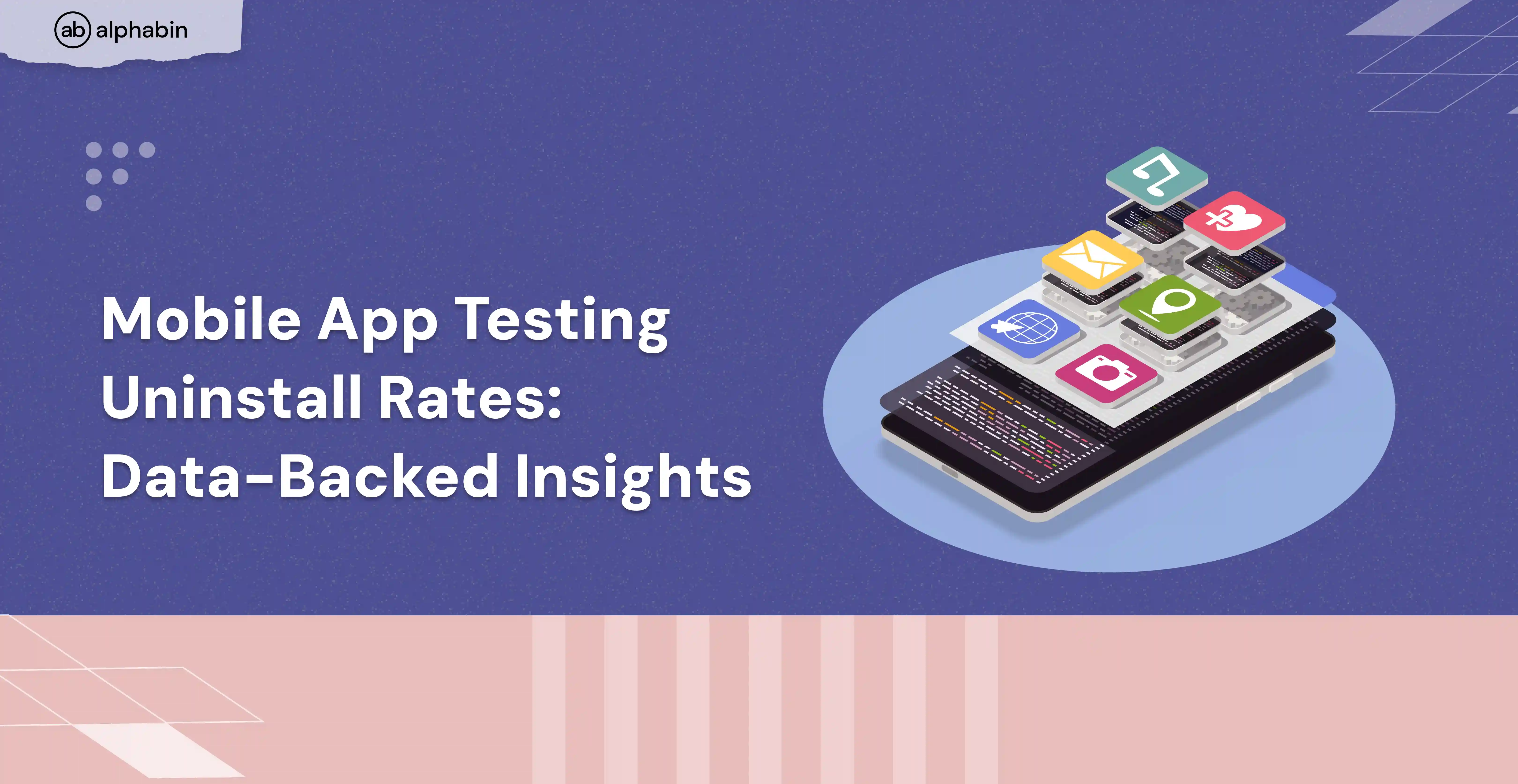Salesforce is the backbone of customer relationship management for countless businesses around the globe. As the world’s leading CRM platform, it enables organizations to streamline operations, automate workflows, and deliver exceptional customer experiences.
According to the Salesforce report, the revenue for FY25 is $37.8 billion to $38 billion. For that reason, testing plays an important role in maintaining the functionality, performance, and reliability of Salesforce solutions.
As Salesforce continues to roll out new features rapidly, the challenge companies face is to remain agile without compromising on quality. Automation testing comes in handy here when we need to verify Salesforce applications in a faster and more efficient way.
In this blog, we take a deep dive into the world of Salesforce test automation, its importance, benefits, and the top Salesforce automation testing tools that will become the future of tests in 2025. Let’s get started!
What is Salesforce Test Automation?
Salesforce test automation is the use of specific tools to automate and improve the testing of Salesforce apps. Manual testing of complex workflows can be error-prone and time-consuming. Automation testing solves these problems by:
- Saving Time: Automating test cases saves time.
- Accuracy: Minimizes human error and gives consistent results.
- Seamless Updates: Automation keeps up with Salesforce’s updates.
Test automation tools use scripts or AI to test end-to-end, so applications meet business requirements and quality and performance.
{{cta-image}}
Why Automation Testing is Crucial for Salesforce?
Automated testing is one of the critical elements for achieving consistent performance and flexibility in the environments of Salesforce. It assists business organizations to compete effectively by providing efficiency, precision, and intermittence.
- Rapid Release Cycles: Salesforce releases updates three times a year, which means manual testing slows down businesses desiring to adopt new features regularly.
- Improved Accuracy: Automated testing eliminates the chances of making mistakes when validating complex workflows; this is made possible through effective modeling.
- Scalability: Automation is highly extensible for dealing with large data sets, increased numbers of users, or even integrated applications.
- Cost Saving: While the use of automation tools involves a definite initial setup cost, it considerably saves testing costs in the long run since the most repeated task is eliminated.
- Regression Testing: Maintaining compatibility for all prior versions of work is also important. Regression testing answers this by ensuring that new changes in the functionality of the system are not to the detriment of the others.
Types of Salesforce Testing
Salesforce testing can be broken down into several types, each serving a purpose in making sure the Salesforce environment is robust.
Unit Testing
Unit testing is testing individual components or units of code. In Salesforce, unit testing is testing individual Apex classes, triggers, and methods.
- Benefits: Unit testing ensures individual components of code are working and reduces the risk of bugs and errors. It’s a foundation for more complex testing by testing the smallest parts of the application.
- Best Practices: Use a testing framework such as Apex Test to write and run unit tests. Make sure tests are independent and don’t rely on external dependencies. This isolation helps to identify issues at the component level without interference from other parts of the system.
System Testing
System testing is testing the entire Salesforce system, all its components and integrations.
- Benefits: System testing ensures the entire Salesforce system is working and meets business requirements. It validates the interactions between components and the system as a whole.
- Best Practices: Use a testing tool such as Provar or Testim to write and run system tests. Cover all critical business scenarios and integrations. System testing helps to identify issues that may not be caught in unit tests.SalesforceUAT Testing
UAT
User Acceptance Testing (UAT) is testing that the Salesforce system meets business requirements and user expectations.
- Benefits: UAT testing ensures the Salesforce system is working and meets business requirements. Involves end-users in the testing process so the system is user-friendly and meets their needs.
- Best Practices: Get business users involved in the testing process to cover all critical business scenarios. Use a testing tool such as Provar or Testim to write and run UAT tests. This collaboration helps to validate the system from a user perspective and delivers value.
Regression Testing
Salesforce Automation Test is a big test process, including a lot of regression tests. It means running tests after changes have been made to the system to make sure that the changes haven’t brought new bugs or made some solution work.
- Benefits: In regression testing in Salesforce, object modifications do not adversely affect other pre-existing functionalities. It also protects data with important information and improves the general utilization of the platform by ensuring timely coordination after modifications.
- Best Practices: Automate regression tests to reduce manual effort and increase efficiency. This ensures that tests are consistently executed and the results are reliable.
Top 10 Salesforce Automation Testing Tools
Salesforce automation testing tools are highly essential for assuring the reliability and quality of Salesforce applications. Without a doubt, these are the best tools based on different testing needs in the Salesforce environment.
1. TestGenX
TestGenX is a powerful, AI-driven test automation tool tailored for Salesforce. This no-code solution streamlines test generation, leveraging advanced AI to record user actions and generate ready-to-use Node.js scripts, reducing setup time and effort.
Key Features
- High accuracy and efficiency in AI-powered automation.
- Pre-built test templates for quick setup.
- Seamless integration with Lightning and Classic.
- Scalable for enterprises and complex projects.
Pros
- Through deep integration, namely, Salesforce built us and our unmatched reliability.
- For all teams, developers, and non-technical users, it is automated and codeless.
- Faster execution and deployment than traditional tools.
- The reporting and analytics are powerful, driving quicker, better-informed decisions.
Cons
- The number of features it offers with such an excess makes it imposing for newbies to learn all of them.
2. Provar
Provar is a codeless testing platform, native to Salesforce, that simplifies testing for non-technical users. It’s a tool for testing that increases testing and software quality.
- Feature: Deep Salesforce integration, user-friendly.
- Pros: Strong Salesforce integration, easy to use.
- Cons: Expensive for small teams.
3. Selenium
Selenium is an open-source tool that supports web testing. It’s a Salesforce testing tool that gives you test coverage, efficiency, and integration with CI/CD.
- Feature: Browser-agnostic and customizable
- Pros: Widely used, large community support
- Cons: Requires advanced coding skills
4. Appium
Appium is for mobile testing, so perfect for Salesforce mobile apps
- Feature: Cross-platform support. Appium can also be used to automate regression tests for Salesforce mobile apps to ensure software quality and performance
- Pros: Free and versatile for mobile testing
- Cons: Limited Salesforce-specific features
5. Puppeteer
Puppeteer is a fast and reliable browser automation for Chrome. Also a good addition to the salesforce automation testing tools category that gives you big advantages in automating salesforce testing.
- Feature: Headless browser testing
- Pros: Easy to set up, Chrome-focused
- Cons: Limited multi-browser support
6. Cypress
Cypress is fast and reliable end-to-end testing. It’s a tool for Salesforce that gives you big advantages in automating testing within Salesforce apps
- Feature: Real-time testing feedback
- Pros: Developer-friendly, fast execution
- Cons: Limited support for legacy browsers
7. Playwright
Playwright is a modern automation framework that supports multi-browser testing. It’s a Salesforce test automation tool that gives you test coverage, accuracy, and efficiency.
- Feature: Parallel testing
- Pros: Full browser testing features
- Cons: Steeper learning curve than Cypress
8. WebDriverIO
WebDriverIO is an extensible framework for web and mobile testing. WebDriverIO can automate many Salesforce tests to ensure full validation
- Feature: Versatile integrations
- Pros: Highly customizable
- Cons: Requires technical expertise to set up
9. Robot Framework
Robot Framework uses a keyword-driven approach for automation
- Feature: Extendable with libraries. Can also be used to automate regression tests for Salesforce apps to ensure all previous functionality remains intact after updates or bug fixes.
- Pros: For non-developers
- Cons: Limited Salesforce-specific features
10. Nightwatch.js
Nightwatch.js is a JavaScript end-to-end testing tool with built-in Selenium support. It’s a robust test automation tool for Salesforce apps so you can run regular and ad-hoc tests easily.
- Feature: Simple syntax
- Pros: Easy to integrate for JavaScript developers
- Cons: Not suitable for complex workflows
How TestGenX is the Right Tool for Your Salesforce Automation Testing?
The primary feature that sets TestGenX apart from other forms of Salesforce automation testing tools is that it was designed with Salesforce needs in mind. It offers:
- AI-Powered Automation: Intelligent automation guarantees faster execution of tests as well as more credible results.
- Pre-Built Templates: This saves time because most of the workflow testing is already done, and all one has to do is use the templates provided.
- Lightning Integration: Also offers built-in integration with Salesforce Lightning so users do not have to spend time and effort testing integrations.
- Cost and Time Efficiency: Makes deployment cycles faster and does so at a lesser cost than some of its competitors.
- Intuitive Test Builder: This helps testing become easier and more effective through accessibility and low or no code, making it easier for testing teams to be flexible while providing high test coverage at a minimal configuration level.
{{cta-image-second}}
Conclusion
Automation testing is crucial for Salesforce on the components of the reliability, performance, and scalability of applications. A lot of tools provide Salesforce testing capabilities but deliver the most distinguished, simple, and productive solution available today.
Alphabin’s TestGenX is transforming Salesforce testing with cutting-edge automation solutions, empowering businesses in their digital transformation. Along with TestGenX, Alphabin provides advanced software testing services for end-to-end reliability. Join the future of Salesforce test automation today!



.svg)











